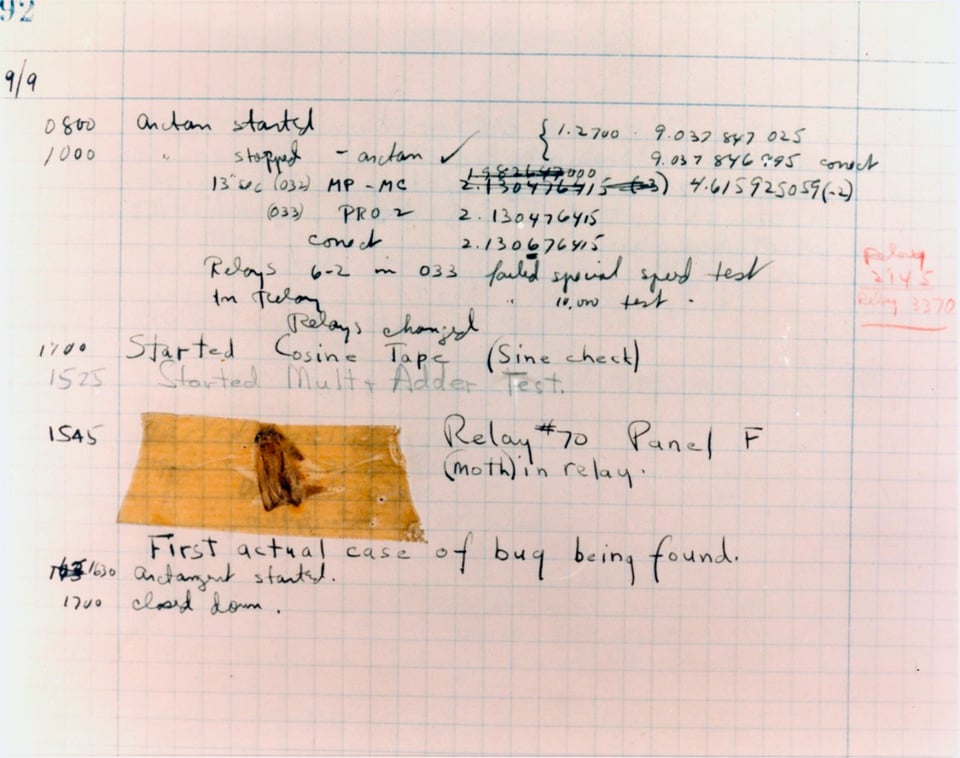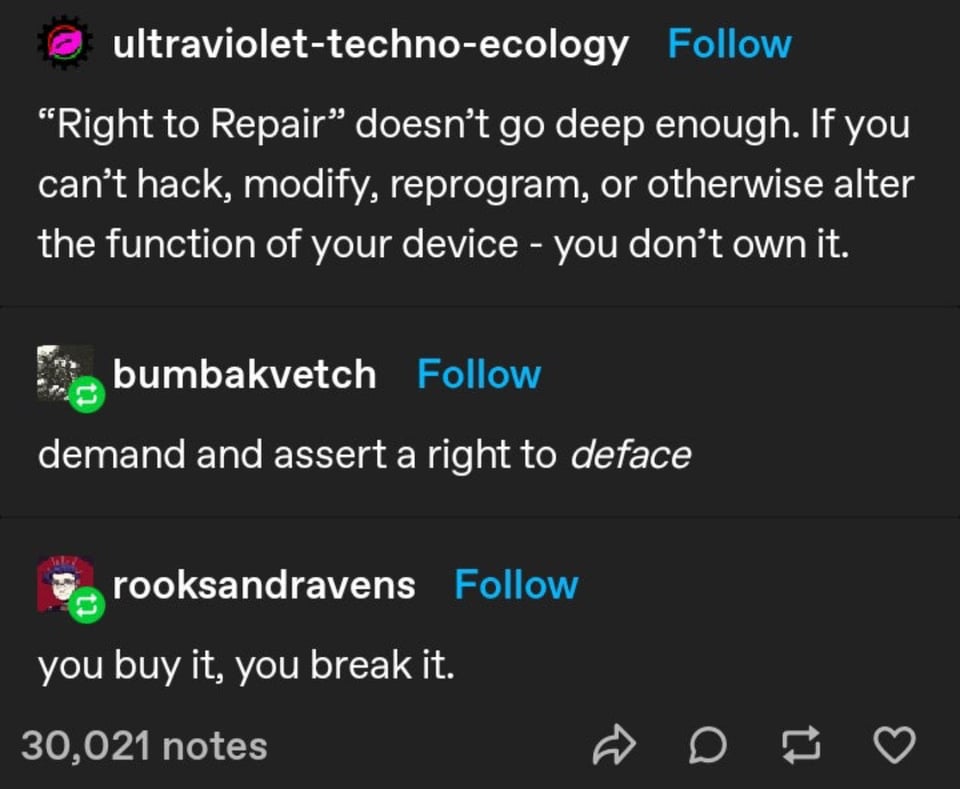b is for bug
each issue of new terms & conditions is an entry toward building abc glossary — a glossary for an anti-colonial black feminist critical media ecology. contribute your own new term & condition at abcglossary.xyz to be part of this project.
when we encounter bugs we often associate them with disruption to the order of things. they are a reminder that our systems are prone to failure and can never be fully knowable. the pesky, and sometimes unsightly, bugs that play a critical role in the natural order of our world get blamed for our technological failures.
the bugs of our electronics were first associated with telephones in the 19th century. its use accredited to inventor Thomas Edison, when he experienced errors while developing an early telegraph system. almost a century later, in 1947, Grace Hopper, a rear admiral in the U.S. Navy and a computer scientist (who’s contributions to computing run long), popularized the term among computer scientist.
The first recorded instance of a “bug” causing a technical malfunction was when Hopper and her team of engineers were working on the Mark II Aiken Relay Calculator, an early computer at Harvard University, found a moth lodged in the machine's hardware. This moth was causing an electrical fault, disrupting the system's normal operations. She removed it and taped it into the computer's logbook with a note stating, "First actual case of bug being found." the image of this logbook page can be seen at the Naval History and Heritage Command.

this was also the first recorded incident of “de-bugging” a computer. computer engineers had to extract actual bugs from inside a computer as early computers were made using vacuum tubes. The light from those tubes attracted moths who would then short circuit the system.
computer science as a field, with a born interest in data and algorithms, is a western science and like many disciplines claim authority in how to systematize, to categorize, to classify, to order, to name, to map, to chart, to calculate, to know — but bugs breach our systems, and put us in speculative relationship with our technologies, with nature, and between ourselves. what can we truly know? what are other ways to exist? what are the possibilities?
Living Mutually
in nature there is the concept of “symbiosis,” a “symbiotic relationship is one that exists between two (or more) different species.” a symbiotic relationship can be parasitic, in which one species benefits while the other suffers, commensal, where one species benefits and the other is unaffected, or mutual, in which both species benefit. often, by default, the bugs in our code are categorized as parasitic — feeling as though we are prey to the chaos they cause when they burrow into our lives. but where is there opportunity to live mutually with the bugs in our system?
Living in the Glitch
these unintended consequences — glitches to our systems — complicate our reality and the idea that we can design against unpredictability, or that we even should. a software bug infiltrates your code, often unnoticed much like a mosquito or a fly makes it’s way indoors. we call these complications bugs as an acknowledgement of the nuisance that insects can be to humans, but disregard the ways that the errors, or the glitches, in our code teach us to be human.
borrowing from Legacy Russell’s Glitch Feminism (2020), the “Glitch is all about traversing along edges and stepping to the limits, those we occupy and push through, on our journey to defining ourselves. Glitch is also about claiming our right to complexity, to range, within and beyond the proverbial margins.” (22) Legacy calls us to embrace the glitch as failure and refusal, to live beyond the binary (code) of social constructs and norms, toward possibilities for other ways of being and world-building. the errors, the faults, the glitches are open portals for us to reimagine, expand, question, revisit.
Living Transformationally
bugs are transformation. they themselves embrace change through the process of metamorphosis — like the caterpillar becoming a butterfly.
Life will hand you bugs. There are a few in my lap at this very moment. But where there are “problems” there are “solutions”. No, where there are “calls”, there are “responses”. Better, where there is a bug, there is transformation. — Ayana Zaire Cotton
when a bug is introduced to your code, how lovely is it to receive an invitation to make a change of state? no matter how incremental, bugs give us opportunity to think more expansively, be informed by a practice of care, and mindfully make change. “What are the bugs that have appeared in your life and taught you how to fly?”
Living Revisionally
in the B.C. (before coronavirus) times, i went to a talk between artist Kameelah Janan Rasheed and writer and co-founder of ARTS.BLACK Jessica Lynne at Printed Matter in 2019. it was upon the release of Kameelahs’s 2019 book, No New Theories. the conversation unfurled like a cypher, much like in the ways of their collaboration, which resulted in the annotations and handwritten notes scribbled on the pages alongside the text.
i've always been drawn to Kameelah's deeply citational practice as a way to bring things into critical focus across time and space. this conversation was an evolution for the idea that the draft is not an error but a source for revision and that the process is the product.

looking at the scan from Kameelah's book feels reminiscent of the annotation of the first bug logged in 1947. it was a story alongside the text — what does it look like to leave it on the page? to think with and alongside the bug?
Living Seasonally
some bugs emerge or go dormant depending on the season. this period of reduced consumption and activity is called a “diapause” to align with the season.
Diapause, a period of suspended development, is a lot like hibernation. Environmental cues, such as shortening days, plants dying back, and cooler temperatures trigger metabolic changes and diapause begins. Depending on the insect, they may pause as eggs, larvae, pupae, or adults.
ongoing western imperialism and globalization is conditioning us as humans for immediate gratification and 24/7-all-year-round uninterrupted access. the bugs in our lives teach us that rest, dormancy, and slowness are necessary for a survivable future. where and when can we as humans draw less power? what could a seasonal internet look like?
Living in Repair
if we must remove the bugs in our systems, how can we do so with care? The Institute for Technology in the Public Interest (titipi) defines a method of bug reporting “the practice of submitting an account of errors, flaws, and failures in software,” that “proposes ways to be involved with technological development that not only tolerates, but necessarily requires other modes of expertise than writing code.” moving away from the extractive nature that is the tradition of de-bugging, they offer a method of bug reporting that is critical of the source, and not just the bug:
The issue with issue trackers and with bug reporting in general is that these are by definition coercive systems. Issues can only be reported in response to already existing structures and processes, when “something is not working as it was designed to be.”
But what if something (for example, in this particular case, a geocomputation toolkit) is not designed as it should be? Or even more importantly, what if geocomputation should not be designed, or it should be actively undesigned and not exist at all? Or what if there were no way to decide or define, in advance, how something should be without making an authoritative gesture of prejudgment and imposition?
Bug reporting tightly ties users’ practices to the practice of development, making present the relations of software––it is a mode of practicing-with.
what if we need to refuse systems and logics altogether? how do we collectively undo what they do, rather than work towards their improvement? When does repair become fantasy?

bugs are a reminder that we are living, that our systems are living, and in relationship to other living breathing things. bugs teach us how to be human in this equation between humans, nature, and technology. so next time you get a bug in your code or one taking refuge in your home, it could be a call for transformation. now, go outside and notice the bugs enhancing your user experience.
REFERENCES
“Glitch is Refusal,” glitch feminism (2020), Legacy Russell
"When Life Hands You Bugs Learn From Their Metamorphosis", Ayana Zaire Cotton, 2023
No New Theories (2019), Kameelah Janan Rasheed
Bug Reporting, The Institute for Technology in the Public Interest
Add a comment: